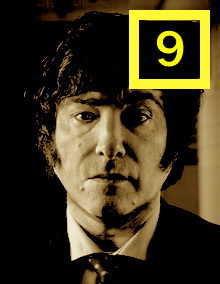
A river story
As an illustrative example of Milei’s churlish and doctrinal arguments on the role of the state in Argentine “society” (a concept which Milei like Margaret Thatcher, eschews), Milei gave a talk in early September 2023 where he discussed river pollution and the rights of factories to pollute rivers at will.
From a little background perspective one of Buenos Aries’ most popular tourism destinations is La Boca (river mouth in Spanish). The barrio of La Boca is famous for its wooden and corrugated iron buildings painted with the remains of cans of paint used to repair visiting vessels, for its art galleries, its football and even tango. The Riachuelo river enters the River Plate in La Boca, the city’s first port (hence the name). Factory effluent poisoned the Riachuelo for centuries. This was historically responsible for yellow fever outbreaks which forced the abandonment of the oldest city center in San Telmo. In 2023 the Riachuelo is a black fetid dead river flowing through the southern suburbs. It was highlighted in a recent study as one if the ten most polluted places on the planet and most of this pollution comes from industry so maybe Milei’s example is not so hypothetical? True to Milei’s right populist angry-little-man rhetoric he has zero interest in the environment. He even commented that climate change, like the Argentine Pope Francisco the first, is a “Communist plot”.
But back to Milei’s fabulous theories on river pollution. In the case of a company that pollutes a river, what is not well defined, argues Milei, is the right to property. By this he means ownership of the water in the river. The Austrian school is all about property and money, until pollution affects the owner of a resource it does not exist and the state can’t own anything and has no rights to private property (of course, nor can the state tax same).
“This company can pollute the river as much as it wants because [Argentina] is a society which has plenty of water and the price of water is zero”, explained Milei, and in the event of a water shortage, he adds: “someone will take care of appropriating the river” because the water “would cease to be worth zero and the pollution would end”, but until then “A company can pollute a river as much as it wants”..
Even a child swimming downstream from Milei’s hypothetical factory (with it’s Austrian school market freedoms to pollute) can see these arguments are flawed. Maybe Milei is trying to work out how to privatise the rain? But his arguments make even less sense the closer one looks at them they just fall apart.
Buenos Aires is not Argentina
Milei bluntly argues that Argentina “is a society which has plenty of water”. Which Argentina is this?
Buenos Aires does sit on the coast of the world’s widest river (the 37Km’s of the River Plate) which is indeed frequently poisoned by factories and untreated effluent (so much so that it is illegal to swim off the Buenos Aires coast for health reasons).
But this does not mean that Argentina “is a society which has plenty of water”. In some Argentine provinces there are extreme shortages of water. For example the province of Santiago del Estero has many towns where inhabitants have to buy drinking water in plastic containers to survive.
Also for the two years that Milei was a deputy in Argentina’s national parliament the huge powerhouse that is Argentina’s agricultural sector suffered a major drought ( don’t mention climate change! ) which has cost the economy tens of billions in expected exports that failed to grow due to lack of water.
Did Milei not notice the drought? Surely if he claims to be an economist he must have seen its effects for example on the government budget? But when it comes the changing climate, there are none so blind as those who will not see. Maybe Milei is trying to work out who owns the rain?
Extreme Market Fundamentalism
Protecting clean river water, even if not profitable, still makes sense. Making a decision like allowing the pollution of a river should never be made on purely economic grounds (though this is often done). Pollution does cause damage to the river and to those who depend on its clean water, economic damage and otherwise. Downstream human communities and non-human lifeforms are affected. This is true whether there is an economic cost, such as a fine, or the cost of operating a filtering plant, or not.
Milei’s viewpoint of nature, rivers, water, wildlife (dare I use a long word that he might not understand: “biodiversity”?) is so extreme, it is borderline psychotic. Milei does come out with these ridiculous outrages rather too frequently. Such is his infantile debating style. He must have had an unhappy childhood and he wants to take it out on fish.
Rivers and pollution exist in the real world but, thankfully there are no elected Presidents advocating Austrian economics (at least not yet!). Mises is just a dead theoretician, his theories stank back then when he wrote them and they still do. If a factory pours poisons into a river, in the real world, fish, wildlife, people and land get poisoned too concentrating these poisons in their bodies or in the soil.
The ideas of Mises (borrowed now by Milei) were bad policy then and they still are. They always have been.

Leave a Reply